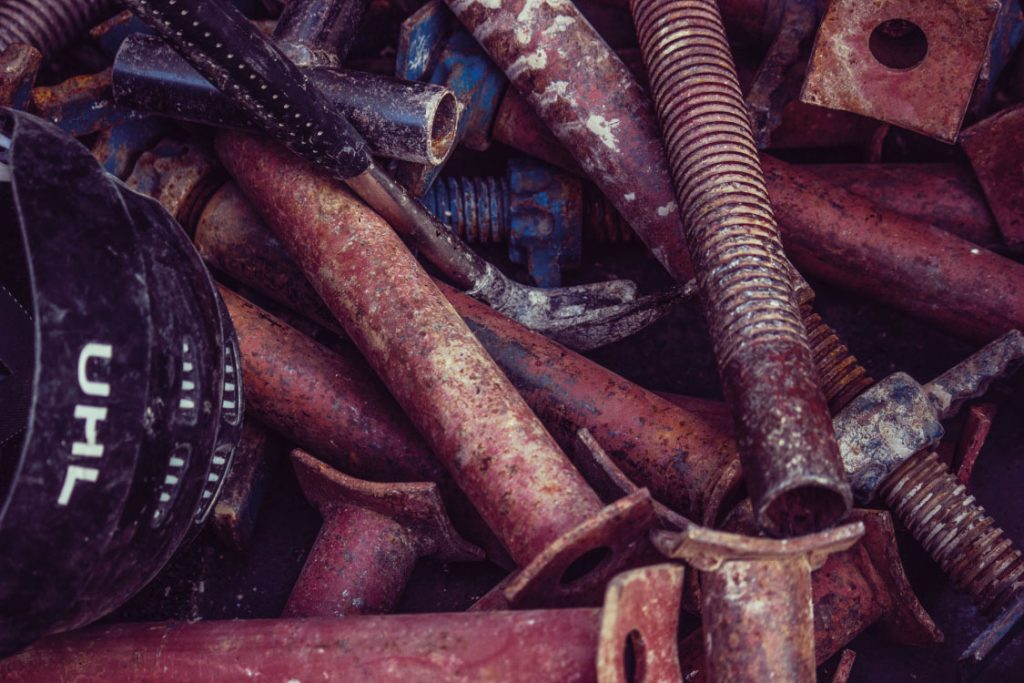Top tips for sorting scrap metal for recycling
In our eco-conscious world, how do we approach the question of metal recycling? As a hardy material, metal won’t biodegrade like paper or card – however, it still has the chance for a second life, thanks to specialist recycling centres who will buy the metal from you.
Sorting scrap metal correctly into the different types will ensure that it is recycled efficiently, and as much of its worth is salvaged as possible. Plus, failure to do so could result in your metal being rejected for recycling.
In this article, we’ll explore exactly how to sort your scrap metal to get the most from it.

Phone ahead
Every recycling centre has its own rules, so it’s wise to call ahead to check if there are any specific guidelines you need to adhere to when sorting and disposing of your scrap metal. Certain facilities may have restrictions, so it’s important you won’t be in breach of that.
Ferrous or non-ferrous?
If you’re unsure of what type of scrap metals you have, a key thing to establish is if the metal is ferrous (iron-containing) or non-ferrous (does not contain iron). An easy method to separate them is to use a magnet – any metal that sticks is ferrous, and any that doesn’t stick is non-ferrous. Generally, non-ferrous metals are worth more money.
Separate them further
Ensure you have a separate container for each type of metal – mixing the metals may complicate the recycling process. Plus, certain metals are more valuable than others, including copper, so separating it out will ensure you’re getting the best money for each type of metal.
Know your ferrous metals
Generally, ferrous metals are more prone to rusting than others, due to their rich iron content. Many guides exist online to spot the difference, but here are some key features of common ferrous metals:
- Steel: solid, and may rust slightly
- Stainless steel: rust-proof
- Tin: bendy and may possibly crack
- Lead: very heavy, so its weight is a telltale sign
Know your non-ferrous metals
Non-ferrous metals are often more valuable than ferrous, as they boast several desirable properties such as being lightweight, highly conductive and resistant to corrosion. Here is a rough outline of the key non-ferrous metals you’re likely to have.
- Copper: Has a distinctive red/orange colour and is often found on piping, wiring and plumbing
- Brass: Often yellow
- Aluminium: Silver colour
How contaminated is it?
If the metal is encrusted with rust, grime or stubborn dirt, it will likely require more processing than clean metals. Place soiled or dirty metals into one pile and clean metals into another. Another form of contamination could come in the sense of the metal being part of an object that has several different metal types affixed together. Make the metal as pure as you can within your skillset, though ultimately your chosen recycling company may be able to help with this.
Benefit from a collection service
Save yourself a journey and instead have the scrap metal collected directly from your home or business. Companies such as Wilton Recycling will arrange a collection at a time that’s convenient for you, collecting from commercial and industrial companies across Ireland. They are also happy to set up a regular collection arrangement, to help your business keep ticking over.
Wilton Recycling are Irelands premier metal recycler, and provide a variety of services for both domestic and commercial customers alike. Whether you’re look for scrap metal recycling or are searching for reliable skip hire, we have an array of waste management and recycling solutions to suit you. Simply contact our friendly team today to find out more.